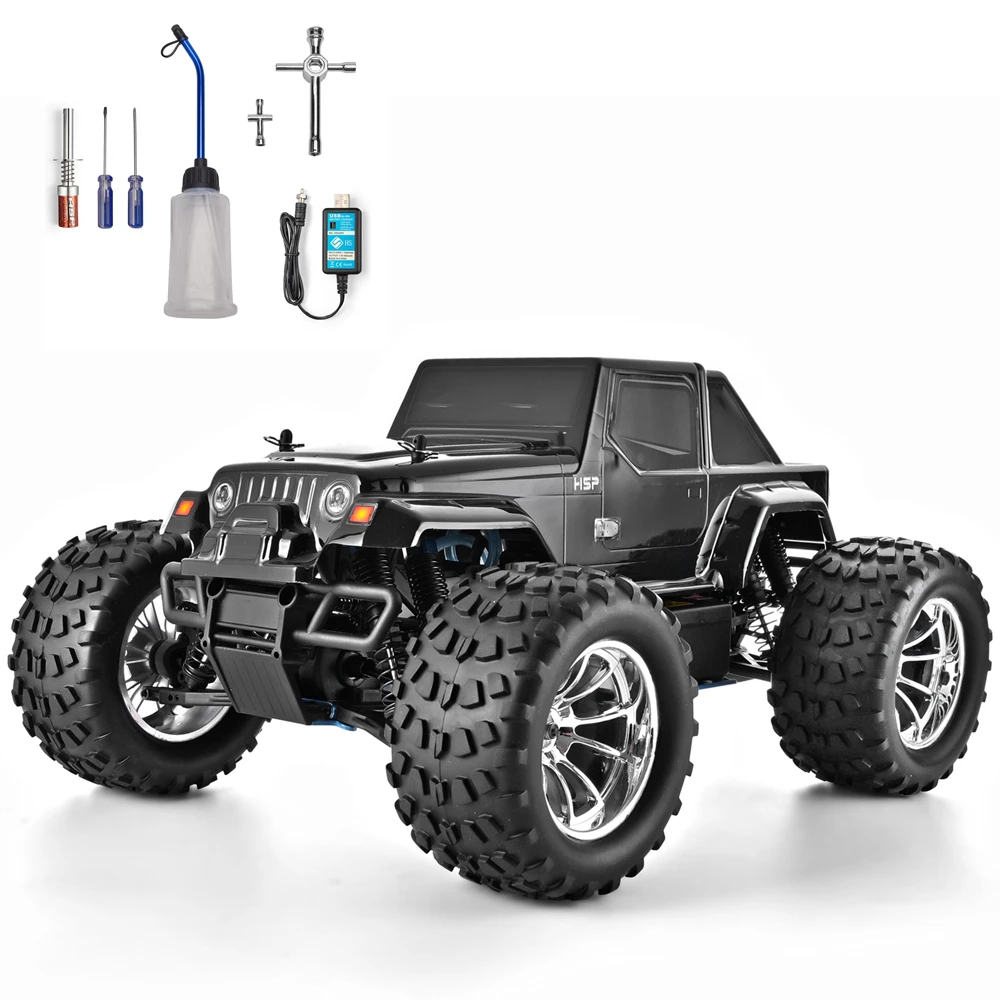Introduction: What is a Gas-Powered RC Car?
Gas-powered RC (remote control) cars have captivated enthusiasts for years. These high-performance vehicles run on a small gas engine instead of batteries, providing a thrilling experience. Many hobbyists appreciate their speed, power, and the mechanical intricacies involved. Unlike electric RC cars, gas-powered versions often offer longer running times and can reach higher speeds. This guide explores the features, benefits, and maintenance of gas-powered RC cars, making it easier for newcomers and experts to enjoy this exciting hobby.
The Benefits of Gas-Powered RC Cars
Speed and Power
One of the most significant advantages of gas-powered RC cars is their speed. Equipped with powerful engines, they can achieve impressive speeds, often exceeding 50 mph. This makes them ideal for racing and outdoor activities.
The acceleration is also quicker compared to their electric counterparts. These cars provide a rush of adrenaline as they zoom down tracks. For hobbyists looking for extreme performance, gas-powered options are a solid choice.
Longer Running Time
Gas-powered RC cars typically have longer running times than electric models. While electric cars may run for 15 to 30 minutes per charge, gas-powered versions can last for an hour or more.
This extended runtime allows for longer play sessions without frequent interruptions. The ability to refill the tank quickly is another advantage. Simply pour in more fuel, and you’re ready to go again, making it ideal for racing events or outdoor enthusiasts.

Types of Gas-Powered RC Cars
On-Road Models
On-road gas-powered RC cars are designed for speed and agility on smooth surfaces. These models often feature streamlined bodies and are more aerodynamic. They excel on paved tracks or roads.
Due to their design, on-road cars focus on speed rather than rugged terrain. They are perfect for racing events where precision and speed are key. Enthusiasts enjoy taking these cars out for competitive races or casual drives on clean surfaces.
Off-Road Models
Off-road gas-powered RC cars are built to handle rough terrains, such as dirt or gravel. These models usually feature larger tires and increased ground clearance, allowing them to navigate obstacles easily.
Designed for durability, off-road cars can withstand bumps and jumps. They are perfect for outdoor adventures and less controlled environments. Many hobbyists enjoy creating obstacle courses to test the limits of their off-road capabilities.
Essential Components of Gas-Powered RC Cars
Engine Types
Gas-powered RC cars typically use either two-stroke or four-stroke engines. Two-stroke engines are lighter and provide more speed but may require more maintenance. They run on a mix of gas and oil, making them simpler but less fuel-efficient.
Four-stroke engines offer better fuel efficiency and smoother operation. They are heavier and more complicated but tend to last longer. Understanding the differences in engine types helps enthusiasts make informed choices based on their preferences.
Chassis and Suspension
The chassis of an RC car provides the foundation for stability and performance. Gas-powered models often feature robust chassis designs that support the engine and other components. Additionally, many come with adjustable suspensions.
A good suspension system helps to absorb shocks from rough terrain, enhancing handling and control. Enthusiasts should consider the chassis and suspension features when choosing a car. This will ensure that the vehicle caters to their specific driving style.

Maintenance and Care
Routine Maintenance
Like any vehicle, gas-powered RC cars require regular maintenance. Routine checks on the engine, fuel lines, and tires are important for optimal performance. Cleaning the car after each use helps prevent dirt build-up and wear.
Lubricating moving parts will enhance longevity and performance. Clear any debris from the exhaust and air filters to ensure efficient operation. Establishing a maintenance routine will keep your car running smoothly and prolong its life.
Troubleshooting Common Issues
Enthusiasts may encounter specific issues with gas-powered RC cars. A common problem is starting difficulties, often due to fuel or engine issues. Inspect the fuel lines and spark plugs for blockages or dirt.
If the car loses power during operation, it may be related to fuel quality or an engine malfunction. Checking the fuel mixture and cleaning the carburetor can help. Many hobbyists find it valuable to have a troubleshooting guide on hand to solve issues quickly.
Fueling Your Gas-Powered RC Car
Choosing the Right Fuel
Selecting the right fuel is crucial for the performance of your gas-powered RC car. Most models run on a nitro fuel mix that includes nitromethane, methanol, and oil. The ratio of these components affects the car’s speed and power.
It’s important to select fuel that matches your car’s specifications. Using the wrong fuel can lead to poor performance and engine damage. Researching and investing in high-quality fuel will enhance your racing experience.
Refueling Techniques
Refueling your RC car properly is also important. Always allow the car to cool down before adding fuel. This prevents damage and ensures safety. Use a funnel to avoid spills when pouring fuel into the tank.
Understanding the correct procedure for refueling can prevent accidents and keep the car running efficiently. Always work in a well-ventilated area to minimize exposure to fumes. Taking these precautions will ensure safe operation and maintenance of your vehicle.

Modifying Gas-Powered RC Cars
Upgrades for Speed
Many enthusiasts enjoy customizing their gas-powered RC cars to enhance performance. Upgrades can include changing the exhaust system or swapping out the engine for a more powerful one. These modifications can lead to increased speed and better handling.
Additional options include installing high-performance tires for improved grip or altering the gearing system to optimize acceleration. Custom modifications allow hobbyists to personalize their vehicles and enhance their driving experience significantly.
Enhancing Durability
Beyond speed, improving durability is also a common goal for RC car enthusiasts. Upgrading components like shock absorbers and chassis materials can make a significant difference in performance on rough terrains.
Using protective coatings for the body can help prevent wear and tear. Many hobbyists invest in aluminum or carbon fiber parts to increase strength without adding excess weight. These enhancements ensure the longevity and robustness of the car.
Getting Involved in the RC Community
Joining Clubs and Groups
Engaging with fellow enthusiasts enhances the enjoyment of gas-powered RC cars. Many communities offer clubs and online groups where hobbyists share tips, organize races, and discuss modifications.
Joining a club can provide valuable insights into best practices, maintenance tips, and local racing events. These social interactions enhance the experience and create camaraderie among those with similar passions.
Competing in Races
Participating in races is one of the most exhilarating aspects of owning a gas-powered RC car. Local tracks often host events where enthusiasts can showcase their skills and vehicles. Competing not only improves driving abilities but also fosters a spirit of friendly competition.
Many racers enjoy preparing their cars for events, engaging in modifications designed to enhance speed and appeal. The thrill of racing, combined with the community aspect, creates lasting memories and friendships.
Conclusion: The Thrill of Gas-Powered RC Cars
In conclusion, gas-powered RC cars offer an exciting and dynamic hobby for enthusiasts. With their impressive speed, durability, and adaptability, these cars are enjoyable for both casual users and competitive racers.
Understanding the various types, maintenance needs, and fueling requirements can enhance the overall experience. Additionally, engaging with the RC community fosters connections and enriches the hobby.
For anyone looking to explore the world of remote-controlled vehicles, gas-powered RC cars provide an exhilarating adventure that promises endless fun and creativity. Embrace the thrill and start your journey into the exciting realm of gas-powered RC cars!
